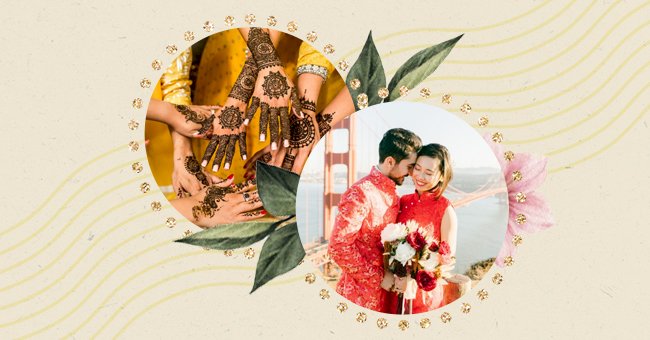
Honoring Your Asian Traditions In Your Modern Wedding
Your wedding is a day to celebrate the first of many days of your life together. And as a part of you, you want to honor your culture and traditions throughout your wedding ceremony, but how do you do it?
Your wedding day is a celebration of you and your partner as a couple at the start of your journey together. And growing up in a rich culture makes you want to honor it somehow on your wedding day.
Asian traditions don’t necessarily fall in line with the traditional weddings we grew up watching on TV. But they’re a part of our culture, so here are some ways you can include them in your wedding ceremony.
Folding paper cranes
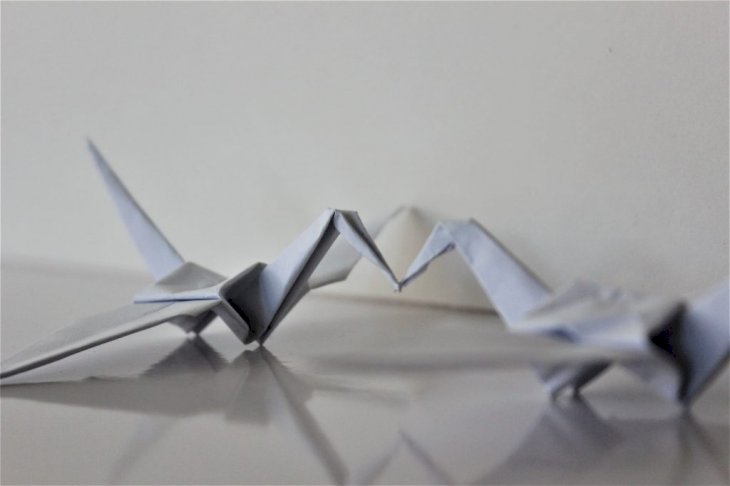
Unsplash
As part of the Japanese-Okinawan heritage, there is a tradition of folding 1001 paper cranes. The bride folds 1000 of the cranes, and the groom contributes just one!
Mehndi Party
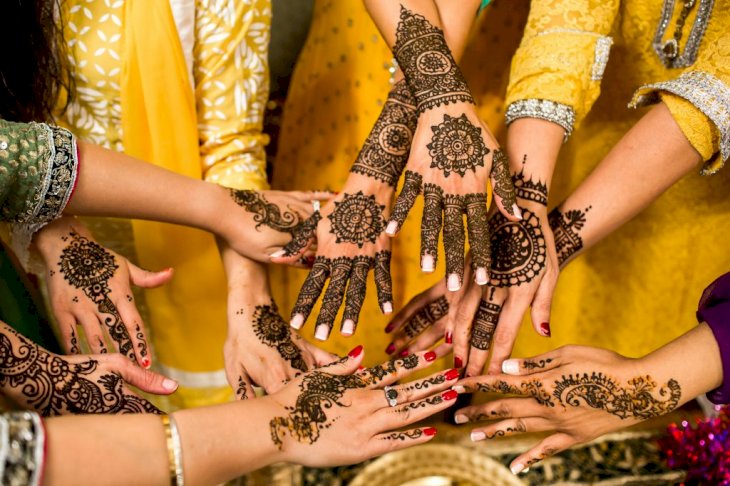
Unsplash
A mehndi party is a tradition in Indian and Pakistani culture. Everyone gathers for food, entertainment, and the bride gets mehndi applied to her arms and feet at the party.
You can change the tradition up slightly depending on your preference for henna. You can opt to make an extravagant pattern or go simple and enjoy the presence of family!
Wearing a lei
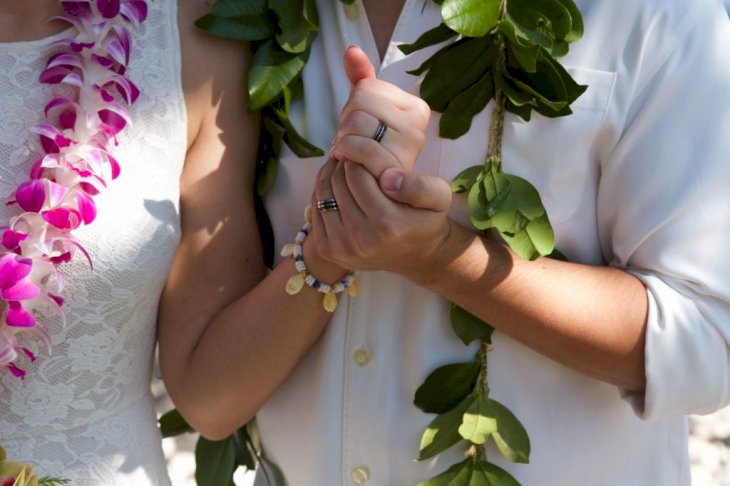
Unsplash
A Lei was originally reserved for Hawaiian royalty, and today, it’s a way of celebrating wonderful achievements. The leis are exchanged between the brides and grooms family during the ceremony.
Banzai
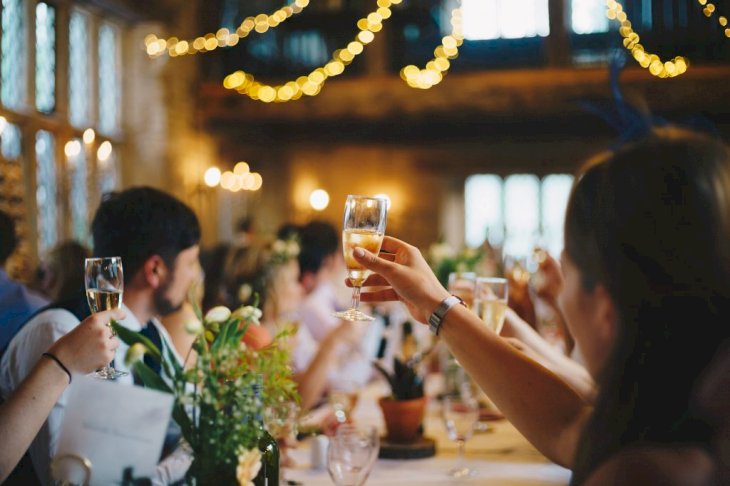
Unsplash
Banzai is a traditional Japanese toast where two toasts are made. One of the toasts is to the bride and groom and the other to the guests. After that, everyone says cheers by saying “banzai” multiple times!
Wearing traditional colored dresses or suits
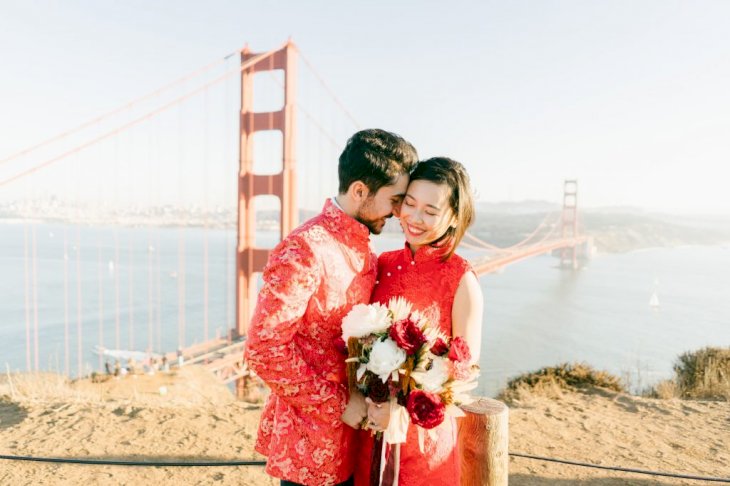
Unsplash
In the Chinese and Indian cultures, red is a wedding color because it represents love and loyalty, unlike the traditional white dress that symbolizes purity. Depending on your traditions, the colors may vary, and wearing a traditionally colored dress or suit is a simple way of honoring a tradition.
The traditions in Asian culture are rich, and it’s something you can pass down to future generations. It’s a great way to honor your heritage and celebrate the start of the journey of your life together!